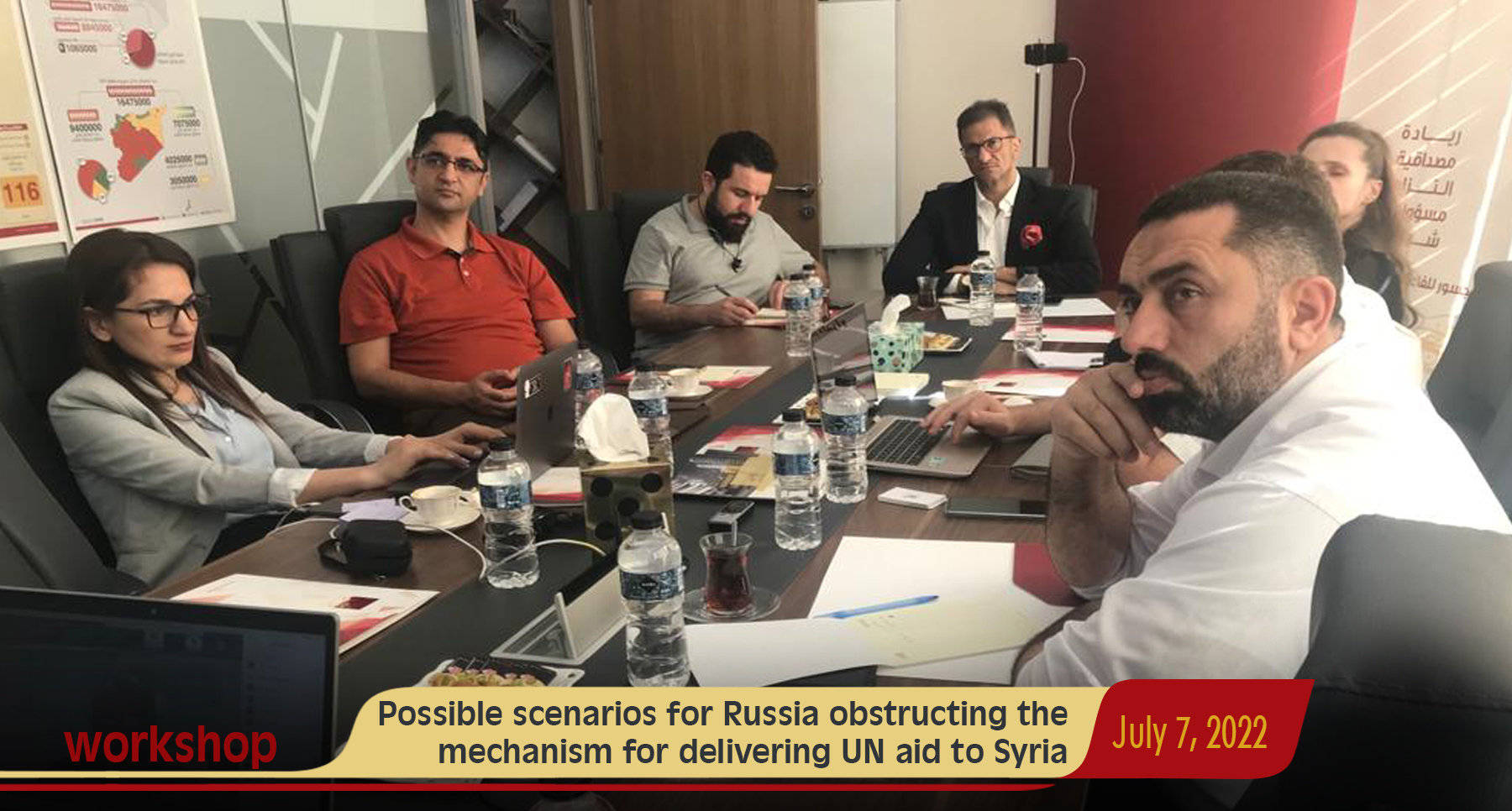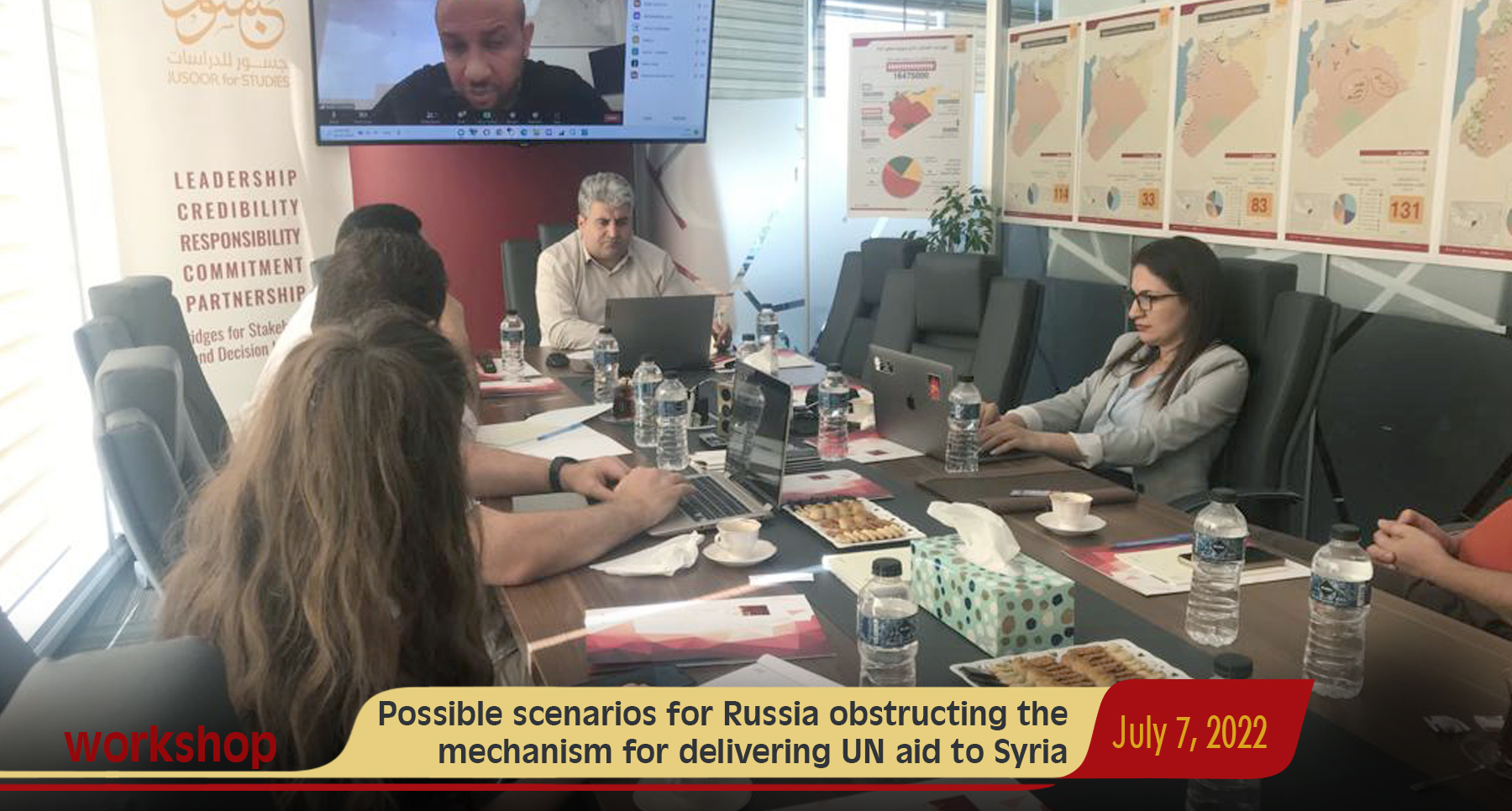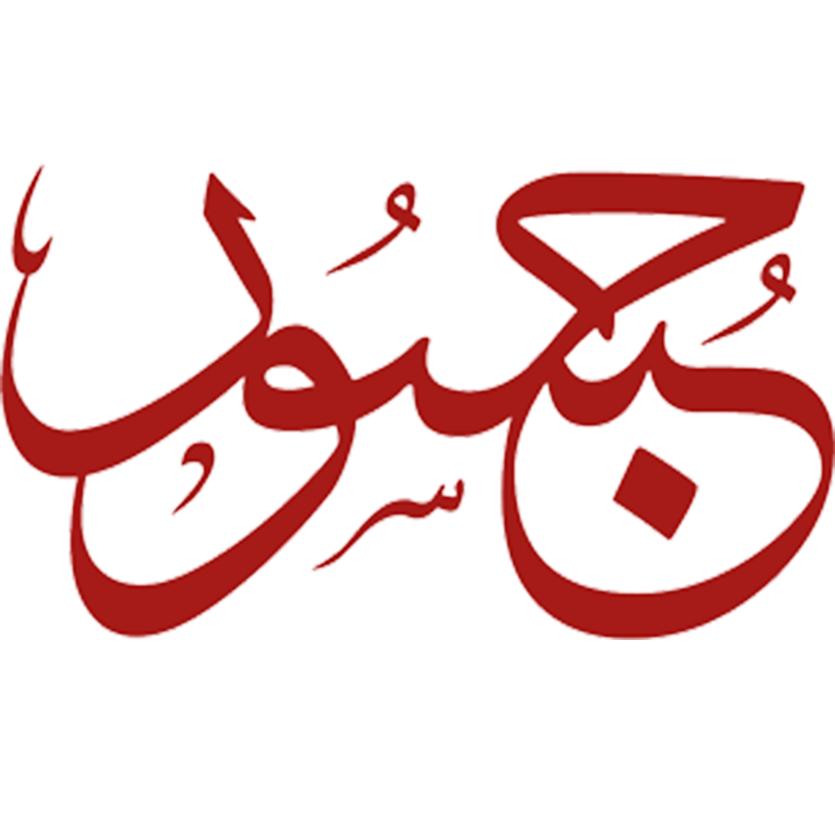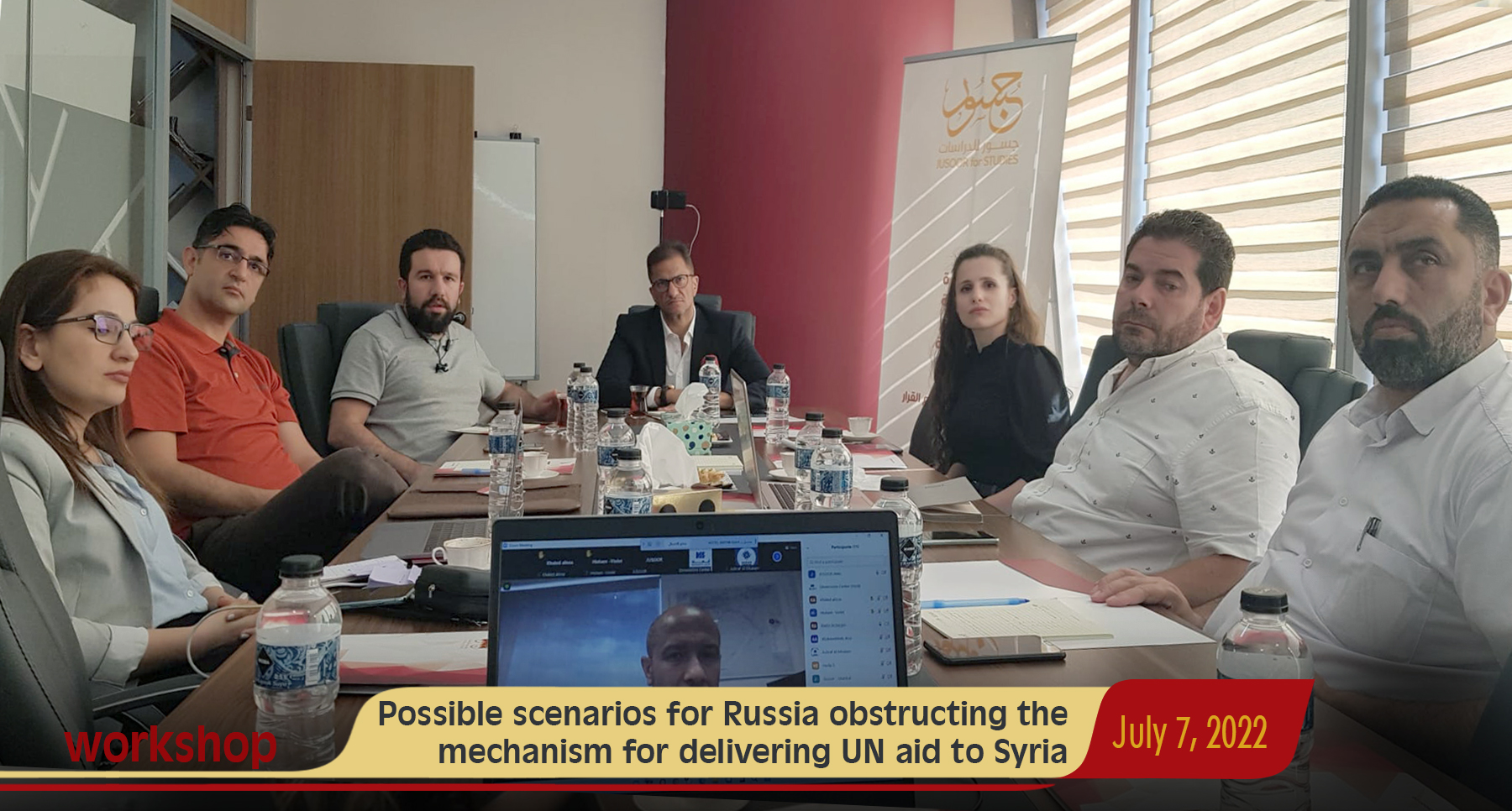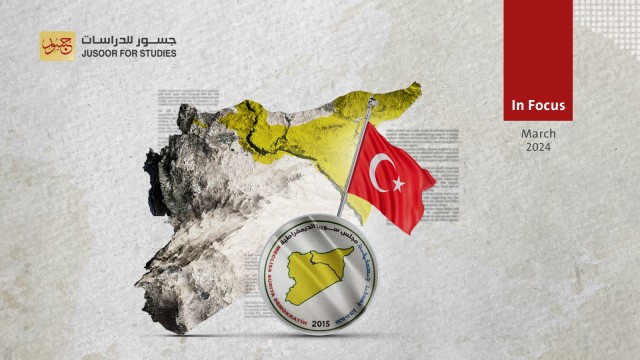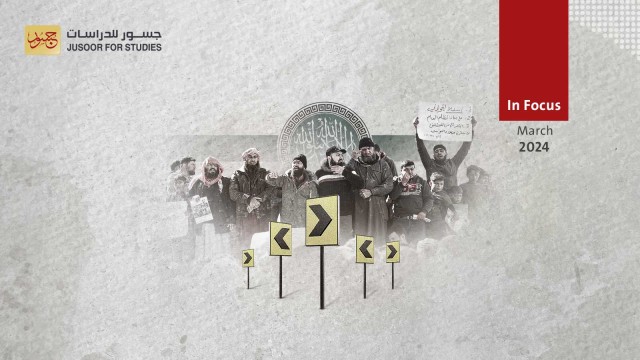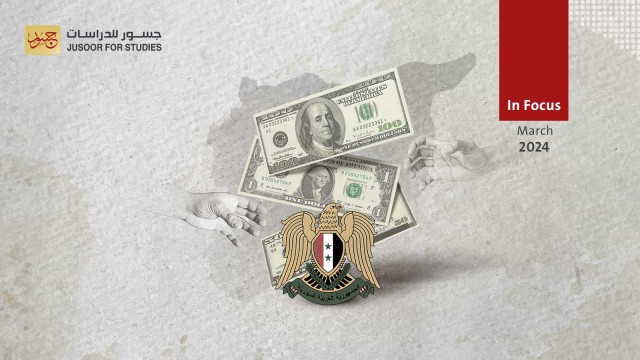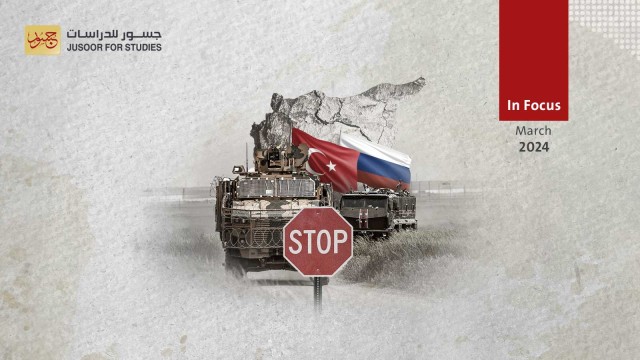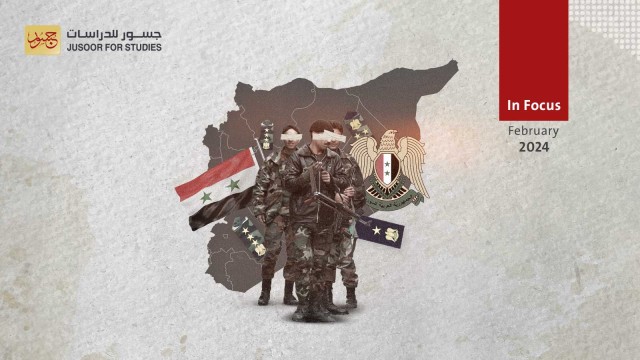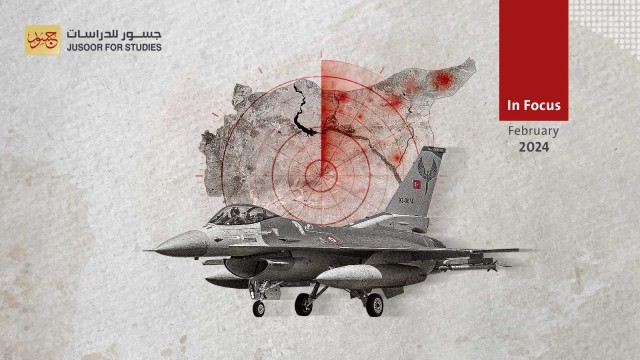Possible scenarios for Russia obstructing the mechanism for delivering UN aid to Syria
Possible scenarios for Russia obstructing the mechanism for delivering UN aid to Syria
Just one day before the date of the Security Council vote to extend UN Resolution 2585, the Jusoor Center for Studies held a workshop on July 6, 2022, in which a group of experts, researchers and media professionals participated. Some of the participants physically attended the session within the Center's head office in Istanbul, while others, who live outside Istanbul participated using the Zoom App as a video conferencing means.
The meeting was opened by a welcome note on the lips of Mr. Muhammad Sarmini, President of Jusoor Center for Studies. Sarmini gave an overview of the session’s topic and its political dimensions, which directly affect the humanitarian aspect that is constantly threatened by Russian pressure. After that, the participants confirmed the great political influence that some countries could exert on the humanitarian aid file.
The participants discussed the main themes that were scheduled in the invitations that were sent to them, which are:
1. To assess the role and the importance of UN aid in northern Syria, and the effects of not extending the cross-border deliveries of aid.
2. The possible scenarios for renewing the UN resolution.
3. The regional and international alternatives for the humanitarian response in areas outside the regime's control.
4. The role of the Syrian opposition institutions and the Syrian civil society in pushing for alternatives.
The participants pointed to the large volume of aid delivered by the UN mechanism, as the allocations for humanitarian support in 2021 exceeded 2.1 billion US dollars. This volume of aid is distributed to civilians across the entire Syrian map, which of course does not cover all humanitarian needs, which according to experts need to be urgently completed, at least twice this amount.
According to the initial information, the participants were more inclined that Russia would not obstruct the continuation of the mechanism for the entry of UN aid across the Syrian-Turkish border (from the Bab al-Hawa crossing, north of Idlib).
The reasons for the likely extension of the UN resolution were based on the key information supplied by managers and officials in humanitarian organizations working in partnership with the United Nations and its organizations to implement humanitarian projects in northwest Syria.
While the participants agreed on the need to seriously think of alternatives, whether to find a way to overcome the Russian pressures at each stage of renewing the UN resolution, that will definitely stop one day, or alternatives to the continuous increase in humanitarian needs, especially in the areas of the Syrian opposition. Discussions focused on the need to develop mechanisms for internal coordination between organizations and the civil society. The participants also stressed the need to think in and move to tangible steps in the development process, creating job opportunities and providing resources in the various employment sectors in northwest Syria.
The session closed after three hours of discussion, as the participants agreed on emphasizing the importance of continuing such meetings and discussions in order to come up with work programs, where think tanks and research institutions have a key role in this process.
